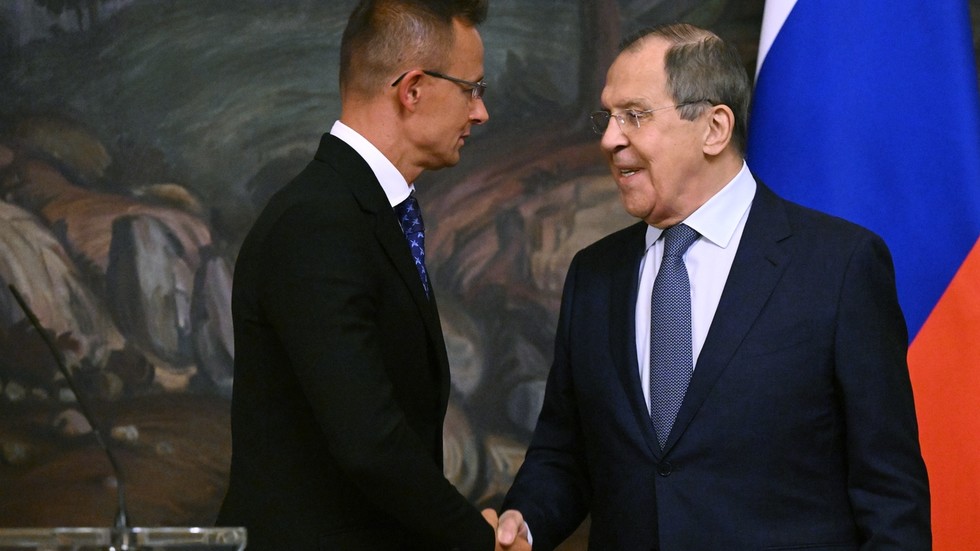
Somebody has to talk to Moscow to keep homes warm, Hungarian foreign minister Peter Szijjarto said
Russian Foreign Minister Sergey Lavrov (right) and Hungarian Minister of Foreign Affairs and Foreign Economic Relations Peter Szijjarto. © Sputnik/Grigory Sysoev
Hungarian Foreign Minister Peter Szijjarto has defended his recent meeting with Russia’s top diplomat Sergey Lavrov, explaining that somebody has to talk to Moscow to keep Hungarian homes warm in winter.
He was referring to the looming energy crisis in Europe, exacerbated by EU sanctions on Moscow and a sharp decrease in Russian energy supplies.
In an interview with Hir TV on Sunday, Szijjarto said that his talks with Lavrov on the sidelines of the UN General Assembly in New York last month served as an opportunity to discuss urgent energy supply matters.
“So when the excellent opposition colleagues describe how stupid this was, let them think that while there might not be warm elsewhere, they will have heating in their apartments. Because someone had to talk (to Russia),” he said.
Szijjarto explained that there is currently “only one gas pipeline in Europe that runs from east to west and operates at 100%” – TurkStream, which delivers Russian gas to Hungary via Türkiye, Bulgaria and Serbia. Russian energy giant Gazprom, Szijjarto noted, has been fulfilling all its obligations towards Serbia.
He revealed that he had also discussed Hungary’s overdue payments for gas. Last week, state-owned energy company MVM announced that it had reached an agreement with Gazprom to defer its payments for the winter.
Szijjarto said that he views foreign policy as “a tool to make the country better off.” Admitting that his meeting with Lavrov may not be seen by the media as “a high-flying story,” he noted, “But what is foreign policy for, if not for this?!”
In an interview with RIA Novosti last month, he expressed regret that he was the only representative of the EU to meet with Lavrov during the General Assembly. If there is no dialogue with Russia, “everything can go even worse than it was before,” he warned.
Hungary is heavily dependent on Moscow for energy and gets around 80% of its gas from Gazprom. While Russia has cut off gas supplies to a number of countries, Hungary signed a deal with Moscow in late August for additional deliveries on top of already agreed volumes.
Hungarian President, Viktor Orban, has accused the EU leadership of causing a continent-wide energy crisis by sanctioning Russian energy. President Vladimir Putin previously likened the bloc’s attempts to cut itself off from Russian fossil fuels to economic “suicide.”




